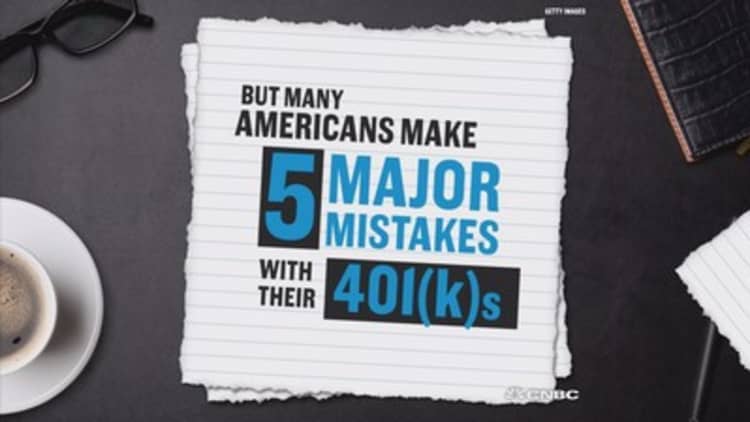
Pioneers of the first 401(k) plans are having some second thoughts.
"I helped open the door for Wall Street to make even more money than they were already making," Ted Benna, a benefits consultant with the Johnson Companies known as the father of the 401(k), recently told The Wall Street Journal. "That is one thing I do regret."
Benna went on to say that he doubted that "any system currently in existence" would be effective for American retirement savers.
In 1984, 401(k) plans had $91.8 billion in assets. Now these employer-sponsored plans hold more than $4.8 trillion in assets, according to the Washington-based Investment Company Institute.
"401(k)s have experienced tremendous growth, and workers are putting more money in today than ever before," said Sarah Holden, senior director of retirement and investor research at ICI. "[These plans] established themselves as a successful component of America's retirement savings system."
Since you may have time to wait for the perfect retirement system, here's what you can do to maximize your 401(k) plan in the new year:
Enroll in the plan
More than 60 percent of 401(k) plan participants were automatically enrolled in their employer's plan, according to the Vanguard Group.
If you weren't automatically enrolled, you should sign up — immediately, financial experts say.
Why? A recent analysis by Fidelity Investments found that investors who have been in their company's 401(k) plan for 15 years straight saw their average balance grow from $43,900 in 2001 to $331,200 as of the end of September. That works out to a 654 percent return over 15 years or an annualized 14 percent.
Contribute at least up to the match
The employer match can make a significant difference to your retirement savings.
The average employer matching contribution at a large company 401(k) plan is 50 cents on the dollar on the first 6 percent of pay, according to Vanguard.
One in 4 employees misses out on receiving the full company match by not saving enough — leaving an average of $1,336 on the table each year, according to investment advisory firm Financial Engines.
"Can you say free money? No one should turn down free money," said Jane Nowak, a certified financial planner with the Wealth & Pension Services Group in Smyrna, Georgia.
Use a target-date fund
Target-date funds are set-it-and-forget-it options that automatically invest more conservatively over time to protect your retirement savings from market volatility.
Investment companies are lowering the costs of their target-date funds, which investors are often automatically defaulted into by their employers.
Target-date fund investors tend to do better than other 401(k) investors, according to investment research company Morningstar and a recent analysis of about 100 large retirement plans by Aon Hewitt, a human resources consulting firm.
Part of the reason the average target-date fund investors do better than other fund investors is that they time the market less.
"Target-date funds are steady and boring," said Russel Kinnel, Morningstar's director of management research. "So there is less fear and greed among target-date fund investors and less market timing."


